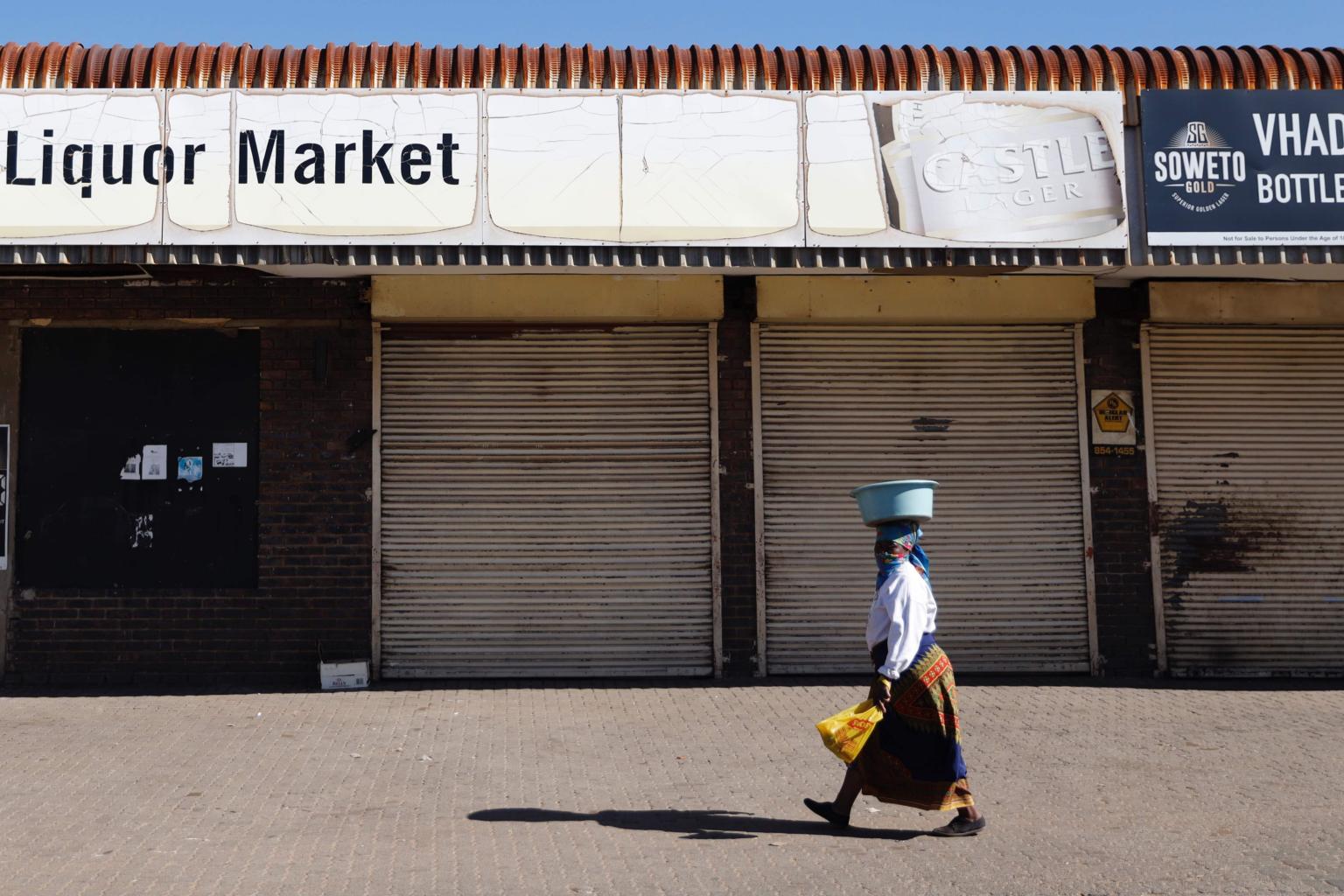Coronavirus resurgence spurs South Africa to ban alcohol sales
Sign up now: Get ST's newsletters delivered to your inbox

Nightclubs and businesses that sell and transport alcohol will have to shut.
PHOTO: AFP
Follow topic:
JOHANNESBURG (BLOOMBERG) - South African President Cyril Ramaphosa announced a renewed ban on alcohol sales and extended a curfew in a bid to contain the fallout from a second wave of coronavirus infections that have pushed the cumulative caseload past the one million mark.
The country will move from virus alert level 1 to level 3 from midnight on Monday (Dec 28) until Jan 15, and the wearing of masks in public places will be made compulsory, Mr Ramaphosa said in a televised address. Most public gatherings other than funerals will be banned, and the hours of a nationwide curfew will be extended to 9pm to 6am, he said.
"We are at an extremely dangerous point in our fight against the pandemic," Mr Ramaphosa said. "We have no choice but to observe the highest degree of vigilance."
The pandemic and restrictions imposed to contain it have devastated Africa's most industrialised economy, with the central bank forecasting that gross domestic product will contract 8 per cent this year. The new curbs, which come at the height of the holiday season, will deal a further blow to the beleaguered tourism and hospitality industries and make it more difficult to engineer a rebound next year.
Mr Ramaphosa declared 22 areas, including the west of the economic hub Gauteng province and the tourist hub of Cape Town, as hot spots and said all beaches, dams and parks there will be closed.
Most of the economy will remain open, and restaurants, casinos and gyms can continue operating until 8pm, he said. Nightclubs and businesses that sell and transport alcohol will have to shut.
The country, which has detected a second and more infectious strain of the virus known as 501.V2, reported a record 14,796 new infections on Christmas Day. Public and private hospitals have been battling to cope with an influx of patients. More than 50,000 new cases have been reported since last Thursday.
A further 7,458 new cases were recorded on Monday, taking the cumulative total since the start of the pandemic to 1,011,871. The country has reported 27,071 deaths from the virus, according to the latest data from the Department of Health.
"We have let down our guard, and unfortunately we are now paying the price," Mr Ramaphosa said. "We can only weather this storm if we immediately and fundamentally change our mindsets."
Varying restrictions on alcohol sales have been implemented since an initial lockdown was imposed in late March, in part to lower hospital admissions from vehicle accidents and alcohol-related violence.
Lost revenue
Two previous alcohol bans resulted in 7,400 job losses and 14.2 billion rand (S$1.29 million) in lost sales for the beer industry, while the government lost 7.4 billion rand in taxes and excise duties, the Beer Association of South Africa said in a statement.
"This third ban will do untold economic damage to the beer sector and the 415,000 livelihoods it supports," it said. "Instead of a blanket ban, government needs to regulate sensibly and to ensure that those regulations are adhered to."
The alcohol industry is "deeply concerned" for its long-term survival following the government's latest actions to prohibit retail sales and on-site consumption, it said in an e-mailed statement.
The industry, which includes the National Liquor Traders Council, South African Liquor Brandowners Association, Vinpro, the Consumer Goods Council of South Africa, retailers and manufacturers, called for the "urgent and regular review" of the ban after the initial period as the health situation improves.
The industry had made representations to the government to consider alternatives other than imposing a nationwide ban on all formal sales of alcohol, its distribution and transportation.
Liquor companies that operate in South Africa include Anheuser-Busch InBev SA, Diageo Plc and Distell Group Holdings.
The rand appreciated 0.4 per cent against the dollar to 14.5786 by 8.06am in Johannesburg.
Other speech highlights: A maximum of 50 people may attend funerals.
Those who fail to wear masks in public spaces will face a fine or be imprisoned for up to six months.
The country expects to receive its first batch of virus vaccines from the World Health Organisation's Covax facility in the second quarter of next year.
Negotiations are under way to buy additional vaccines.

